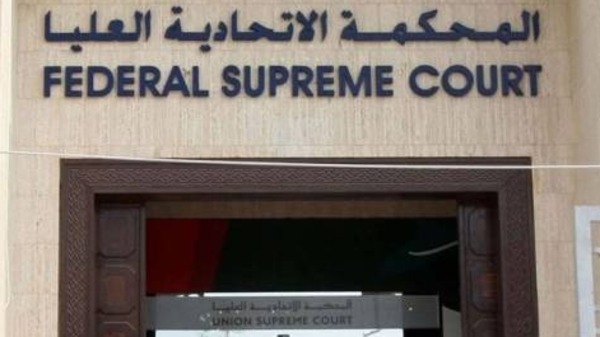
ABU DHABI: Sixty-one convicted coup plotters received jail terms of up to 10 years in the United Arab Emirates yesterday after a trial that targeted Islamists and drew criticism from human rights groups.
Among those sentenced were academics, lawyers and members of prominent UAE families, including a cousin of the ruler of one of the seven emirates in the federation, a longtime foe of Islamist groups seeking a role in politics and state affairs. Eight men were sentenced in absentia by the Federal Supreme Court to 15 years in prison, in a judgement rights groups said showed growing intolerance in the US-allied Gulf Arab country.
The government said the sentences could not be appealed. “These verdicts cement the UAE’s reputation as a serious abuser of basic human rights,” said Nicholas McGeehan, Gulf researcher at Human Rights Watch. “Today’s judgements mark yet another low point for the UAE’s worsening human rights record.”
Alkarama, a Swiss-based Arab human rights group, called the verdicts politically driven and said they should be overturned.
State news agency WAM said that apart from those sentenced in absentia, 56 were jailed for 10 years and five for seven years, while 25 were acquitted, including all 13 women accused.
Dozens of suspected Islamists have been detained in the past year amid government worries about a spillover of Arab unrest. The trial was widely seen as an attempt to tackle what the UAE sees as a threat from the banned Muslim Brotherhood.
Many of the 94 defendants belong to Al Islah, a group which the UAE says has links to Egypt’s Brotherhood. Al Islah denies this, but says it shares some of the Brotherhood’s ideology. The defendants, known as UAE94, were accused of “belonging to an illegal, secret organisation … that aims to counter the foundations of this state in order to seize power and of contacting foreign entities and groups to implement this plan”. The defendants had denied the charges, and some said they had been abused in detention, an accusation the state denied.
International media have been barred from attending the court hearings, which began in March. Yesterday, witnesses said police blocked roads outside the court. Family members gathered at a parking lot nearby said they had expected tough verdicts but were disappointed that the court had not examined allegations of torture and procedural flaws.
Attorney General Salem Saeed Kubaish said in January the defendants had sought to infiltrate state institutions, including schools, universities and ministries.
A government statement after the verdict said the court had been transparent, fair and independent, with more than 500 observers at each hearing, including relatives of the defendants, local media and a state-linked rights group. Rights groups had urged authorities to grant full public access to the trial. They did not do so.












